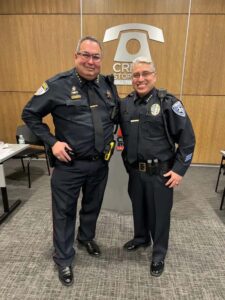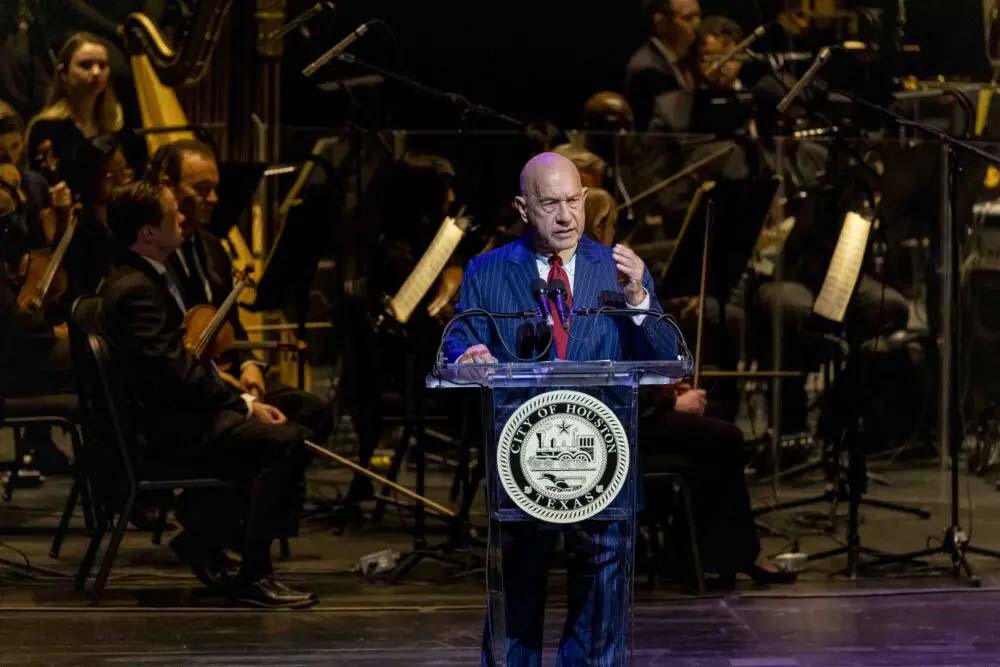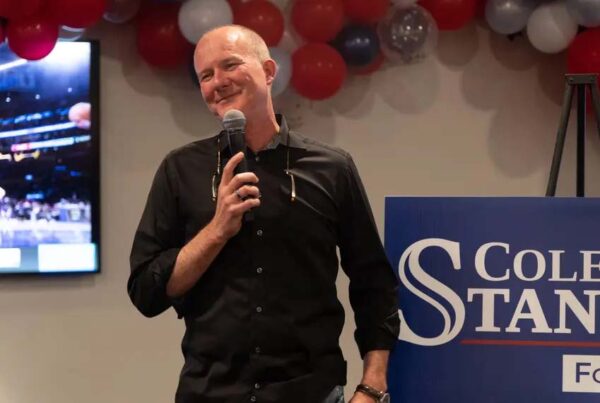From Houston Public Media:
Local law enforcement leaders and at least two county commissioners are giving their support to Houston Mayor John Whitmire’s proposals to tighten coordination between the Houston Police Department and other law enforcement agencies as a way of helping to reduce crime.
“As a group, we share that vision to work together,” said Paul Cordova, Aldine ISD’s police chief and the new president of the Houston Area Police Chiefs Association. “We want to jump on board and be part of the solution by working together, not separately in silos.”

Left: Paul Cordova, Aldine ISD’s police chief and the new president of the Houston Area Police Chiefs Association, and Rice University Police Chief Clemente Rodriguez, the association’s immediate past president.
Andrew Schneider / Houston Public Media
Rice University Police Chief Clemente Rodriguez, the association’s immediate past president, said Whitmire’s outreach marked a sea change from the previous administration. “We had not had Mayor (Sylvester) Turner. He had not come to any of our meetings,” Rodriguez said. “Our association has been advocating for exactly what (Whitmire) talked about, which is collaboration among all the agencies.”
In addition to the chiefs, Whitmire has reached out to Harris County Commissioner and former Sheriff Adrian Garcia, since there are more than 5,000 employees in the Sheriff’s Office.
“If we can get the Houston Police Department and the Harris County Sheriff’s Office much more aligned and synchronized, then for all the other agencies that we have in Harris County, there’s a greater likelihood that we can then find better ways to be coordinated with them as well,” Garcia said.
Garcia urged Whitmire to endorse a Uniform Offense Report for both HPD and the Sheriff’s Office, a common form for Houston police officers and Harris County Sheriff’s deputies to use when responding to calls.
“Having a more uniform report will then be helpful to the District Attorney’s Office as they work to prosecute those cases because they don’t have to retrain their eyes as they’re looking at two different offense reports, as an example,” Garcia said.
Garcia said there would likely be some cost in the transition to a single form, but he argued that, in the long run, such a move could save both the city and the county money.














